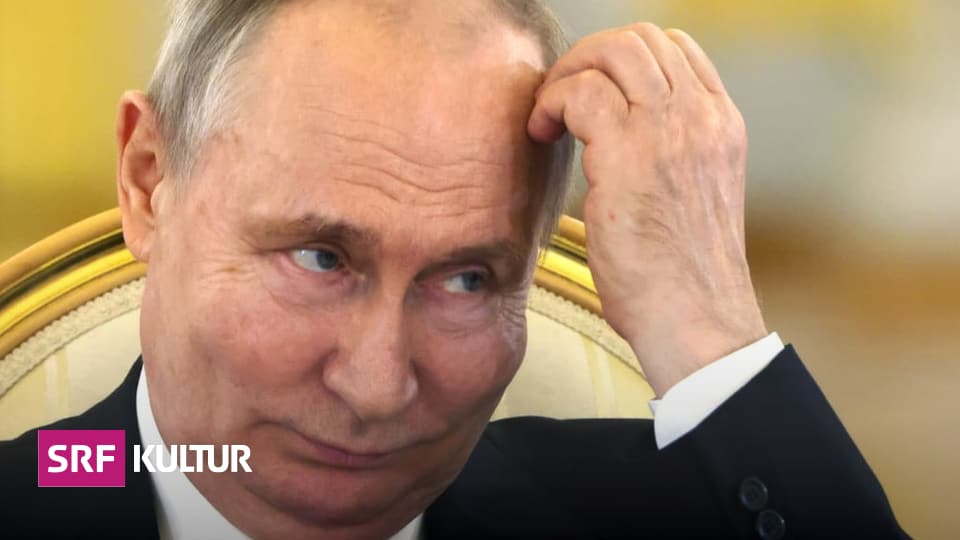
In patriotic poetry, a Russian poet invokes Russia’s victory in the Ukrainian war—and celebrates a great victory with it. And now it is known: a Russian collective poet Gennady Rakhtin discovered. His Poems: Slightly Modified Nazi Poems.
Patriotism, nationalism and glorification of war are very popular in Russia. You immortalize them in poetry, Z-poems, and celebrate the poet who writes this type of poetry properly. Only: The poet was a collective construct. His works are poorly translated German Nazi poetry and hold up a mirror to wartime society. Russian-born author Alexander Estes explains exactly how.
SRF: What exactly did this joint do?
Alexander Estes: Well, first of all, a collective Russian social network created a fake profile under the name “Gennady Rakitin”: a teacher from Moscow, philosopher, 49 years old, married, Orthodox. The poet then published 18 poems within a year, which were actually poor translations of National Socialist poetry. It must be said that there are worst representatives of Nazi poetry.
And was the joint successful?
The main success was that these poems were liked and shared many times in the cultural world, the literary world, the so-called Z-poetry, i.e. the state-sponsored new patriotic poetry.
They are the same slogans, the same formulas glorifying war and even death.
A large number of Russian politicians, including Duma deputies, have joined Rakhidin – about 100 deputies in total. These people are now discredited in a certain way by the publications about Rachidin.
It’s especially ridiculous that we’re talking about Nazi poetry because Russia wants to annihilate Ukraine in war.
Yes, of course it is ridiculous. That is what this act showed: how close the ideology of the Kremlin is to the ideology of the National Socialists. They are the same slogans, the same thoughts and formulas glorifying patriotism, valor, war and death.
Such indirect actions are now very common.
The Russian regime, at least symbolically, was betrayed by this conspiracy. Is this a form of resistance that still exists in Russia?
Yes, in reality the options are very limited as open resistance can lead to imprisonment. Torture is also common, and of course it can lead to removal by the Kremlin regime. In this regard, such covert operations are actually quite common at this time.
Those operating from abroad are somewhat independent. Protest poems are published here in Russian, but also translated into other languages.
Are there any other known cases like the fake poet Gennady Rakitin?
You can also invite the prankster Urban from Belarus. Posing as a representative of the ruling party, he managed to stage an act in a Russian school under the motto “Work sets you free.”
Following the action, students and teachers photographed themselves with posters bearing National Socialist slogans, a slight adjustment to Russian reality. So a prankster who acts like a fake poet.
Interview conducted by Ruth Wiley.
Radio SRF 2 Culture, Culture News, July 5, 2024, 7:06 am ;
rutw, finished

“Wannabe pop culture fanatic. Zombie advocate. Entrepreneur. Internet evangelist. Alcohol fanatic. Typical travel buff.”





More Stories
Choosing the Right Quality Management Software for Your Industry
If guests bring items: Can shower gel be packed from the hotel?
This diet can prevent death from dementia